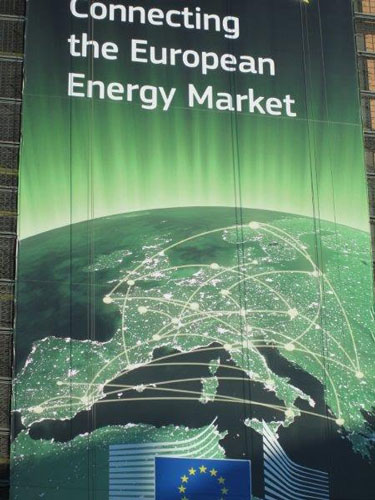I had the privilege to participate to the yearly EU-Russia talks organized by EU’s economic and social committee and the Russian civic chamber. This year the one day event, organized in Brussels late May, had four topics on the agenda: EU-Russia relations in general, Russian membership in World Trade Organization, human rights, and Arctic cooperation. The discussions between the parties were for the most part direct and informative to my understanding. The day ended with a joint declaration and commitment to continue the talks next year.
 For me, the workshop was an interesting and educational update to the EU-Russian relations, its opportunities and difficulties. As an international relations researcher, I could not help thinking that the discussions could have been interpreted from very different angles: focusing on more traditional IR approaches, especially between political and economic power relations between the EU and Russia; or on more constructivist approaches concentrating on subjectivities, identities, and stereotypes, or my favourite, a Foucaultian one, of a EU’s liberal project of human rights, free trade and funding of cooperation and the difficulties to implement it with Russia. The Russian critical reactions were at least to my understanding, at least partially a response to the role of the EU as an educator.
For me, the workshop was an interesting and educational update to the EU-Russian relations, its opportunities and difficulties. As an international relations researcher, I could not help thinking that the discussions could have been interpreted from very different angles: focusing on more traditional IR approaches, especially between political and economic power relations between the EU and Russia; or on more constructivist approaches concentrating on subjectivities, identities, and stereotypes, or my favourite, a Foucaultian one, of a EU’s liberal project of human rights, free trade and funding of cooperation and the difficulties to implement it with Russia. The Russian critical reactions were at least to my understanding, at least partially a response to the role of the EU as an educator.
I was invited to contribute to the Arctic cooperation session which included presentations by EU’s Arctic experts and Russian indigenous peoples’ organizations. It was obvious that there was a disappointment among the EU representatives over the recent Arctic Council decision not to grant an observer status to the EU in Kiruna ministerial meeting, in Sweden. Also, the disappointment over the lack of support by Russia to the EU participation in the Arctic Council became clear in the days’ discussions. However, most of the debate among participants related to the human rights which is also relevant for the Arctic cooperation. European and Russian representatives disagreed with the facts, implementation and significance of the recent Russian federal law on non-governmental organizations requiring them to register themselves as “foreign agents” if they receive funding from abroad. However, in general it was considered a step ahead that the topic of human rights was on the day’s agenda.
The day was full of political statements, reports on specific topics and experts’ contributions. I was not only expert participating to the event. Our role was clearly to bring another perspective, outside the political everyday language, to the day’s discussions and possibly give something new to the politicians to think about. With my presentation on the social dimension of the Arctic I hopefully contributed to the understanding that “ the social” in the Arctic includes the whole Arctic populations, both indigenous and non-indigenous and sustainable development is more than adaptation. It is about participation in and influencing developments in the Arctic.
The declaration from the workshop can be found from here:
Text by Monica Tennberg